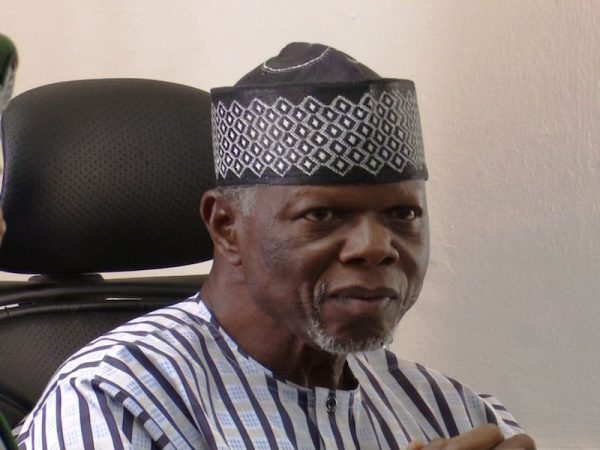
As against the earlier promise by the Comptroller General of the Nigeria Customs Service (NCS), Col Hameed Ali on assumption of duty as head of the service to increase federal governments revenue by auctioning seized and abandoned cars, vehicles worth over N20 billion are currently rotting away at various ports and warehouses of the service, media investigation has revealed.
Aside the over N10 billion worth of seized cars rotting away in Customs warehouses across the country, about 6,000 vehicles worth over N10 billion have been abandoned by importers at the Lagos ports.

Ali had introduced e-auction system to auction seized and abandoned vehicles last year, but the NCS under him has since abandoned the system due to its inefficiency.
In the first week after the system was inaugurated, spokesman of the service, Joseph Attah, had said the service generated N272,115,366 from the auction of 646 vehicles under its electronic auction scheme.

Since then, nothing has been heard from the service concerning the auctions despites frequent seizures and its warehouses going out of space for vehicles.

THISDAY checks revealed that the vehicles, imported through Apapa and Tin-Can Island ports, were abandoned because of the owners’ inability to pay the Customs Duty within the stipulated period.
The Duty Paid Value (DPV) of about 1,000 of the vehicles, Customs sources said, is up to N4 billion.
The market value of each of the vehicles is between N4 and N4.5 million.
Reliable sources close to the NCS told media that instead of importers looking for ways to pay the duties and levies, they resorted to bribing some Customs officers.
They also sought ways to ‘fly’ the vehicles out of the ports through “unscrupulous agents.”
Over 3,000 of the vehicles, it was learnt, have been moved to some bonded terminals. Some sources believe are still at both terminals contributing to the ports congestion.
The source alleged that some of the importers delayed payment until the vehicles were declared overtime cargoes.
Their thinking, he said, is that such vehicles would be sold to them later at very cheap rate through auction.
An official of one of the bonded terminals informed media that some importers abandoned some of the vehicles declared as overtime cargoes when they realised they have to pay 70 per cent duty and levies to clear them.
Speaking on the condition of anonymity, an importer said, “As importers, part of our efforts was to ensure that we patronise Nigerian ports and don’t divert our cargoes to the ports of neighbouring countries, but rather than this gesture being recognised and compensated, the federal government through the NCS is busy breathing down on our necks, asking us to pay 70 per cent duty and 70 per cent levy on every brand new vehicles imported into the country.
“Ditto used vehicles. We have to pay 35 per cent duty and 35 per cent levy. When you calculate all the amount involved, you will understand the reason why people abandoned their vehicles.
“We have invested heavily on each of the vehicles abandoned at the ports. We ought to be encouraged. Even some of those the government is buying vehicles from find ways of bringing them out of the ports without paying the appropriate duty so that they can break even.”
A senior Customs officer at the ports, said the NCS’ position on duty collection had not changed.
The Customs, he said, would collect the duty on the vehicles, adding that the importers would be sanctioned by declaring their vehicles as overtime cargoes and auctioning them.
“We are committed to the recovery of the duty payable on every imported vehicle. We have the government’s backing on this and the management has no reason whatsoever to shirk its responsibility in this regard,” he stated.
 MMS PLUS NG – Maritime, Aviation, Business, Oil and Gas News Online Newspaper with coverage in Maritime, Oil and Gas, Aviation, Power and Energy as well as Financial News
MMS PLUS NG – Maritime, Aviation, Business, Oil and Gas News Online Newspaper with coverage in Maritime, Oil and Gas, Aviation, Power and Energy as well as Financial News









